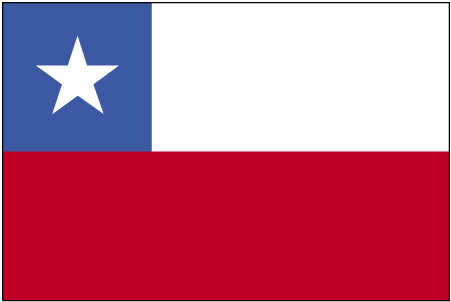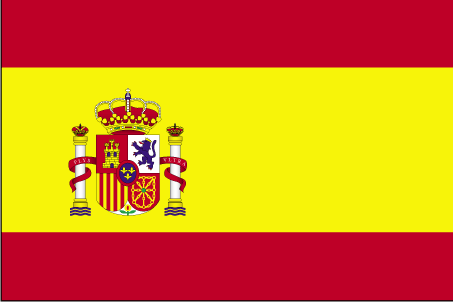Resolution #204
 |
The question of legal status of refugees |
| Committee: SPECPOL | |
| Main Submitter: France | |
| Submitted: 02/04/2022 10:19 |
| Status |
|---|
| Passed cosubmitter sheet validation |
| Approved by approval panel |
| Selected for debate by secretariat |
| Passed by committee (SPECPOL) |
Committee Voting
| For: | 29 |
| Against: | 0 |
| Abstentions: | 1 |
Options
Co-submitters
 | Chile |
 | Spain |
 | UK |
 | Ukraine |
 | USA |
Resolution
Committee: The Special Political and Decolonisation Committee
TQO: Legal Status of Refugees
Submitted by: France
Co-submitted by:Chile, Spain, Ukraine, UK, USA
The Special Political and Decolonization Committee,
Recognizesthe Geneva Convention does not exclude the removal of asylum-seekers to safe third countries,
Notesthe obligation of member states to respect the human rights and fundamental freedoms of all refugees regardless of their status and specific needs,
Expresses concernabout the large and growing number of refugees who find themselves in unfamiliar countries and do not understand the native language or culture,
Recognising the wide range of factors that may cause people to flee their homes, and that Refugees may have to cross borders illegally, or arrive in another country without proper documentation, in order to escape violence, death, injury, unfair persecution, oppression, famine, or other dangers,
Believing in the rights of all people laid out in the Universal Declaration of Human Rights, and that people have a right to escape from situations where their rights are not respected, and strive to live a safe and happy life in a place where they will be treated fairly and their rights will be respected, and that the UDHR extends to all people, not excluding refugees,
Reminds that all refugees, no matter the laws of their previous country must accept and follow the laws of the new countries that they settle in,
-
Calls for anonline and in personinternational conference for all member nations, in particular the parties to the 1951 Refugee Convention and the 1967 Protocol, to propose amendments to make them more applicable to the modern day, taking into account the impact of modern technology, climate change, and cultural changes among other factors which have had an impact on refugees;
-
Reaffirms that a refugee is a person whom "owing to well-founded fear of being persecuted for reasons of race, religion, nationality, membership of a particular social group or political opinion, is outside the country of his nationality and is unable or, owing to such fear, is unwilling to avail himself of the protection of that country; or who, not having a nationality and being outside the country of his former habitual residence, is yunable or, owing to such fear, is unwilling to return to it” as specified under the 1951 Geneva Convention and that any person who has no nationality, is outside their country of normal residence and either does not wish or is unable to return to that country for any of the above reasons is stateless;
-
Suggests that all refugees with a justified fear of persecution in their own country for reasons of race, religion, nationality, political views or belonging to a specific social group, gender or sexual orientation are issued with a ‘refugee status certificate’ by the UNCHR and relevant UN sub bodies, through member nations ideally, upon their leaving of remain valid until such a point as the refugee is naturalized into a new country or is able to return to their country of origin, their home country in order to cement their refugee status, such a certificate would :
-
Ensure the rights of refugees and prevent them from being returned involuntarily to a country where they fear persecution,
-
Contain personal information including name, date of birth,personal identification number and current nationality as well as a unique identification QR code,
-
Remain valid until such a point as the refugee is naturalized into a new country or is able to return to their country of origin,but will have to be renewed every 2 years,
d. Be issued through a number of different methods such as but not limited to,
-
By UN officials at border crossings between nations where large-scale refugee crises are occurring,
-
Through post if a refugee has already made it to a new, safe member nation and is settled,
-
By UN officials and authorized non-governmental organizations (NGO’s) in refugee camps,
-
Through digital means similar to the EU digital COVID-19 vaccine certificate;
4.Further Calls for the implementation of education programs which will help to adapt refugees to their new environment as well as educate the public on the nature of the refugees and their culture in conjunction with UNOII, IOM, UNHCR and United Nations educational scientific and cultural organization (UNESCO):
-
Educate the public through targeted mass media campaigns about the importance of the treatment of refugees and their respective cultures through mediums such as but not limited to public lectures, news outlets localize leaflet distribution and social media campaigns,
-
Educate refugees about the history, political systems, laws and cultural norms of their country and where can they can find resources relating to learning to speak the native language of the country in means such as but not limited to organized workshops within local communities language courses directed at the refugees add local education of facilities and the distribution of educational boo
-
Create an educational program distributable in schools that emphasizes the importance of treating refugees equally with respect to native citizens and teaches children about the differing cultures of refugees in conjunction with UNICEF adopted at the discretion of member nations,
-
Provide funding for additional language lesson for refugees in both their mother tongue and the language of their current country of residence;
5.Further suggests the creation of an international free hotline and website available to refugees in all member states overseen by the UNOII with the objective of:
-
providing immigrants with information about local laws and political systems ,
-
informing refugees of opportunities for employment and residency in their respective local areas;
-
informing refugees of cultures and customs of their local community
-
providing mental health support to specifically tailored towards refugees and the challenges they have faced
6.Asks for the creation of a new UN subbody of the UN High Commissioner for Refugees, the Committee for Judicial Fairness (CJF), which will advocate for refugees to be treated fairly in justice systems around the world by means such as but not limited to:
-
Providing funding for:
-
Translators and translation services in member nations which require them so that refugees can properly engage with their legal system
-
Member nations to develop educational services and programmes for refugee to advise them on their civil and legal rights
-
-
Publish an annual report on the how accessible and adequate they are for refugee in their legal system, with specific recommendations made for member nations and to the Office of the Secretary-General, with funding provided to LEDCs to implement said recommendations;
7.Recommends that in emergency situations where a large-scale refugee crisis occurs in a short time span, as has occurred in Ukraine, that all member nations waive refugee application requirements for 6 months or implement equivalent measures for any refugees fleeing from the area provided they have a valid refugee status certificate in order to remove them as quickly as possible from dangerous situations;
8.Further Asks member nations to ensure that the human rights of refugees are protected by working with existing UN organizations, other governments and NGOs to:
-
Provide adequate and accessible healthcare to refugees, particularly emergency care and pediatric medicine,
-
educate both refugees and local citizens on issues relating to the immigration of the refugees in order to promote a mutual understanding between immigrants and local citizens to attempt to remove barriers for integration,
-
Providing assistance to any refugees who are victims of race-related attacks by providing the contact information of local authorities and assisting immigrants in the reporting of such crimes in conjunction with the World Health Organization (WHO) ,
-
provide available housing that’s conditions are up to standard to take care of them, these conditions will be overseen by the UNHCR and UN-HABITAT who will conduct frequent surveys to investigate whether conditions are up to standard.
9.Further recommends, the World Bank, overseen by the UNHCR, provide funds to LEDCs receiving an influx of refugees who may not have the economic means to provide appropriate accommodation to these refugees in order to allow the building of proper infrastructure and services for them and allow the relevant UN organizations to oversee this funding